Ulrika Jonsson: ‘There was a lot of bed-hopping on Gladiators’
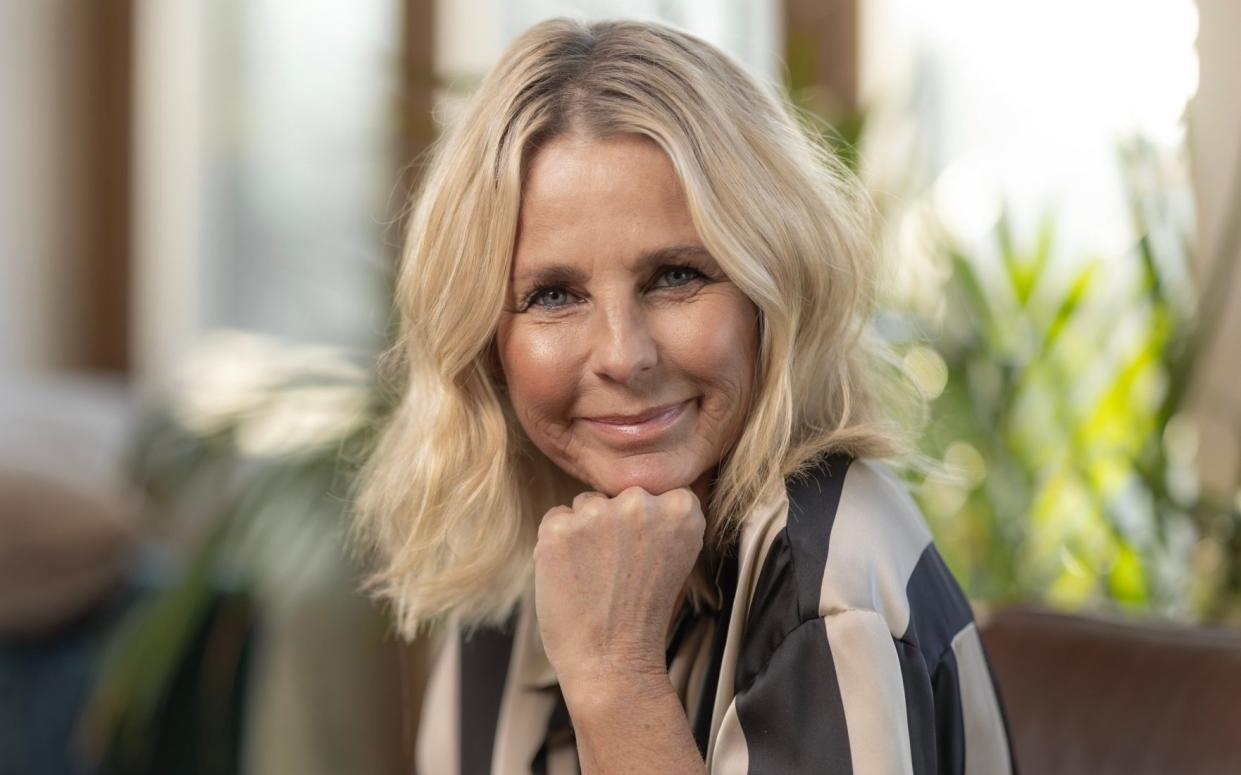
You can smell the sweaty Spandex from here. On Saturday evening, Gladiators will come grappling, swinging and pugil-sticking back on to British prime time.
More than 30 years after it made its debut on ITV, and 24 years after the original programme ended – we’ll gloss over the doomed Sky version in 2008 – the format has a new home on the BBC. There are new presenters in the form of father and son duo Bradley and Barney Walsh, new contestants and new challenges.
The original referee, John Anderson, now 92, he of the unforgettable Scottish intonation of “you well goh en may furst whestl” has handed down his stripy top to the former Premier League ref Mark Clattenberg. There are new Gladiators, with names just as ridiculous as the originals: Bionic, Apollo, Electro, Phantom, Fire.
But the DNA of the show, which pits teams of civilians against an array of muscle-bound professional athletes in a series of more-or-less violent PE challenges, remains intact. Producers will hope it injects Saturday evenings with welcome panto energy.
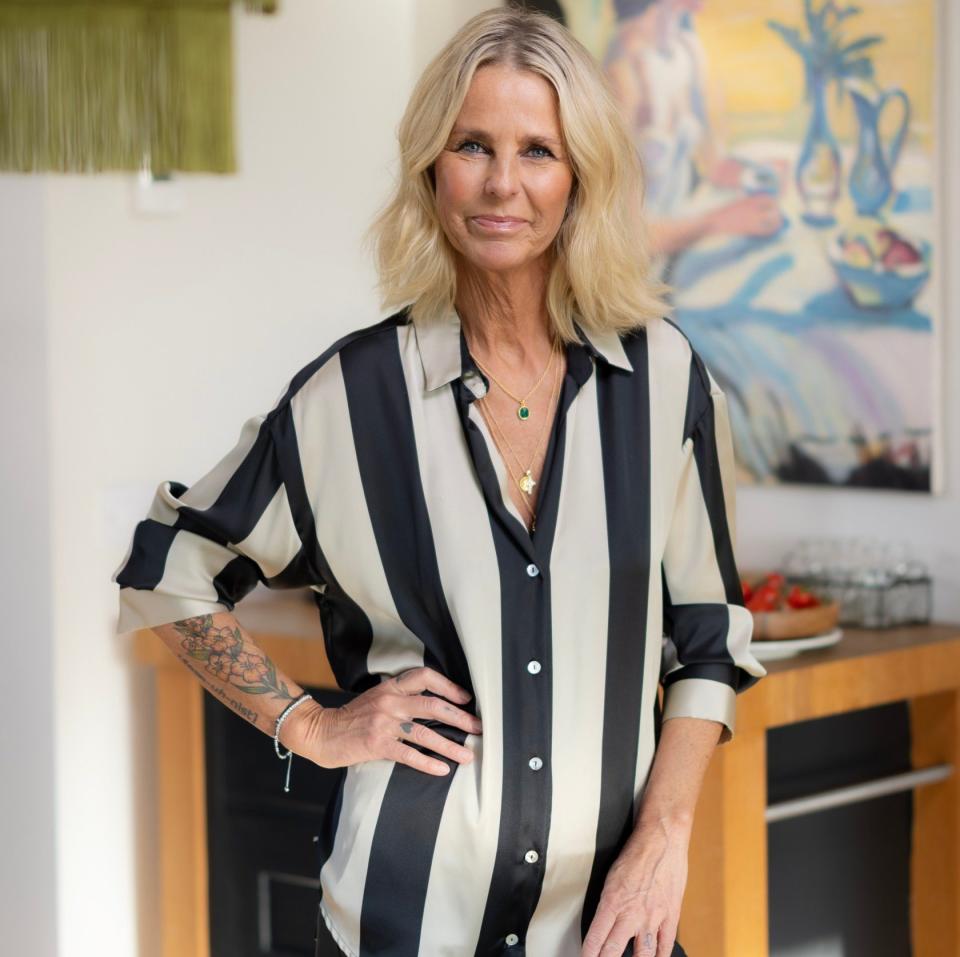
For Ulrika Jonsson, it is a reflective moment. As the presenter of the original series, with John Fashanu, Jonsson was one of the most visible figures on British TV in the 1990s: a talented live broadcaster who also happened to be a blonde, blue-eyed Swedish siren. At its peak, Gladiators attracted more than 14m viewers, the kinds of numbers these days only a Royal wedding, funeral or coronation can draw.
“Gladiators was as rock and roll as you can imagine,” says Jonsson, 56, at the roomy home just outside Oxford she shares with her youngest son and two sprightly bulldogs. Curled up on a large green sofa in a grey jumper, she has lost none of the brightness that made her such an engaging screen presence. She is not involved in the new version, but is eager to see it, and has been encouraged by the trailer. “It looks like they’ve done a good job,” she says.
Imported from America, Gladiators did not seem a sure-fire hit at first. It was filmed in front of a live audience at the National Indoor Arena in Birmingham, where initial audiences were so poor that they had to be moved around to create a full impression on TV. But viewers took to its mix of high camp, physical competition and sculpted bodies.
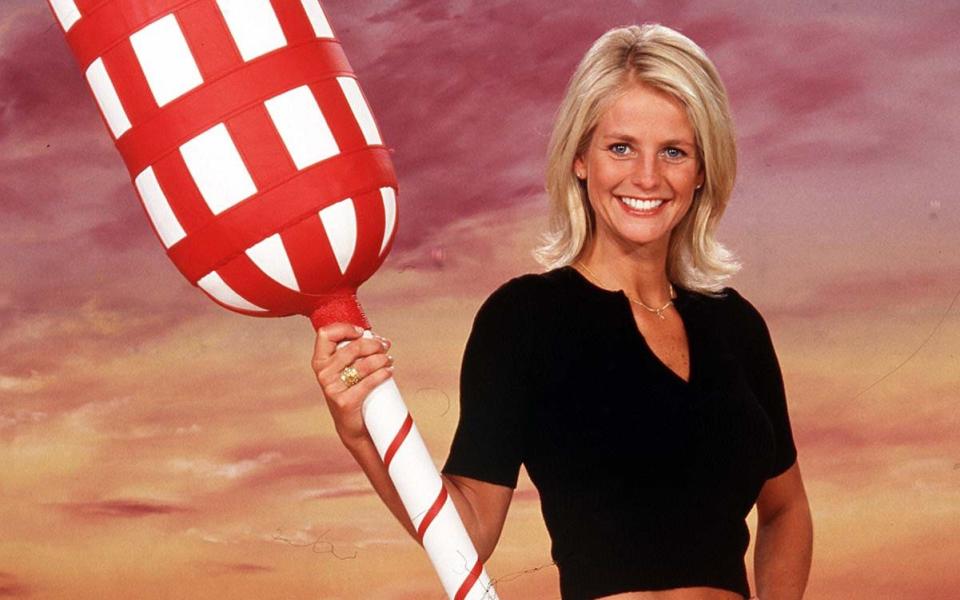
“It was like they were on drugs,” says Jonsson. “Well, they were probably on different kinds of drugs. But they were so excitable. You don’t build a body like that without bucketfuls of vanity. But this was their moment and they got very excited. There was a lot of bed-hopping [she herself dated Hunter, real name James Crossley, for a year]. The producers put them all on one floor in the hotel, which made it easy.”
Looking back now, Gladiators is a product of its era. For example the new iteration has a marked lack of cheerleaders, which were a feature of the ITV version. Nor does it give its black Gladiators names like Shadow and Rhino.
“There are so many things like that you just wouldn’t do now,” Jonsson says. “It was a completely different time. In the first series Nigel Lythgoe [the producer and director, who was recently accused of sexual assault by Paula Abdul while she worked on American Idol and So You Think You Can Dance, claims he denies] put me in a leotard and tight leggings and placed me in amongst the audience.
“I’ve never been so uncomfortable in my life. I was probably a bit of totty in his eyes, so he put me in really slinky clothes. I remember standing there with my boobs up here thinking, this is horrible. Nowadays you’d put your foot down straight away, but it wasn’t the climate. And also, I’d just been given a big show to do, so you don’t want to kick up a fuss.”
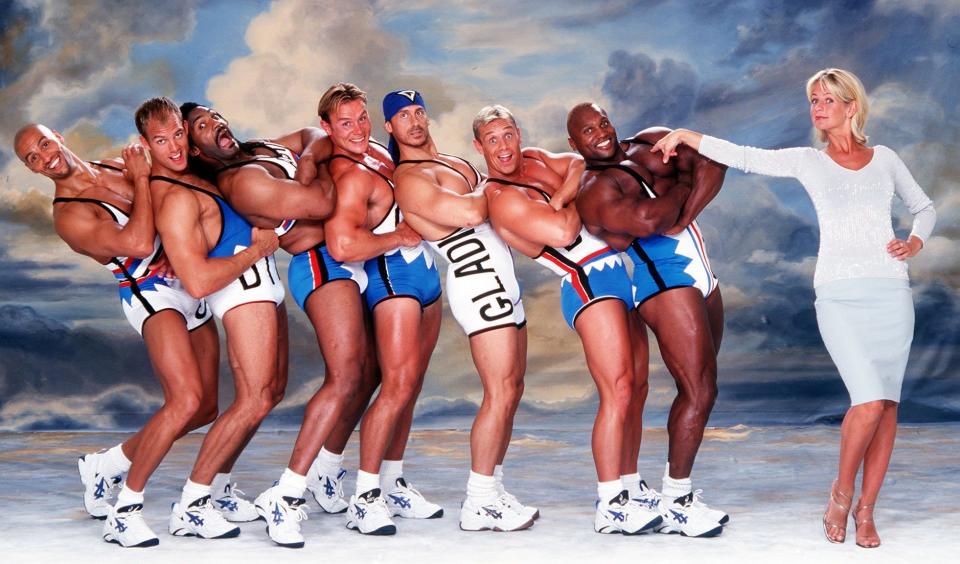
As well as making stars of the Gladiators, the programme’s success put Jonsson in the Sauron’s Eye of the British tabloid press at its most intrusive.
Born in 1967, Jonsson moved to the UK at the age of 12, following her mother, who had left when her daughter was eight.
Her first job on TV was in 1989 as a weather reporter – weather girl, as it was – on Good Morning Britain, but it was clear she was cut out for more. Beautiful, funny and disarmingly frank, perhaps down to her Scandinavian upbringing, Jonsson was a producer’s – and editor’s – dream.
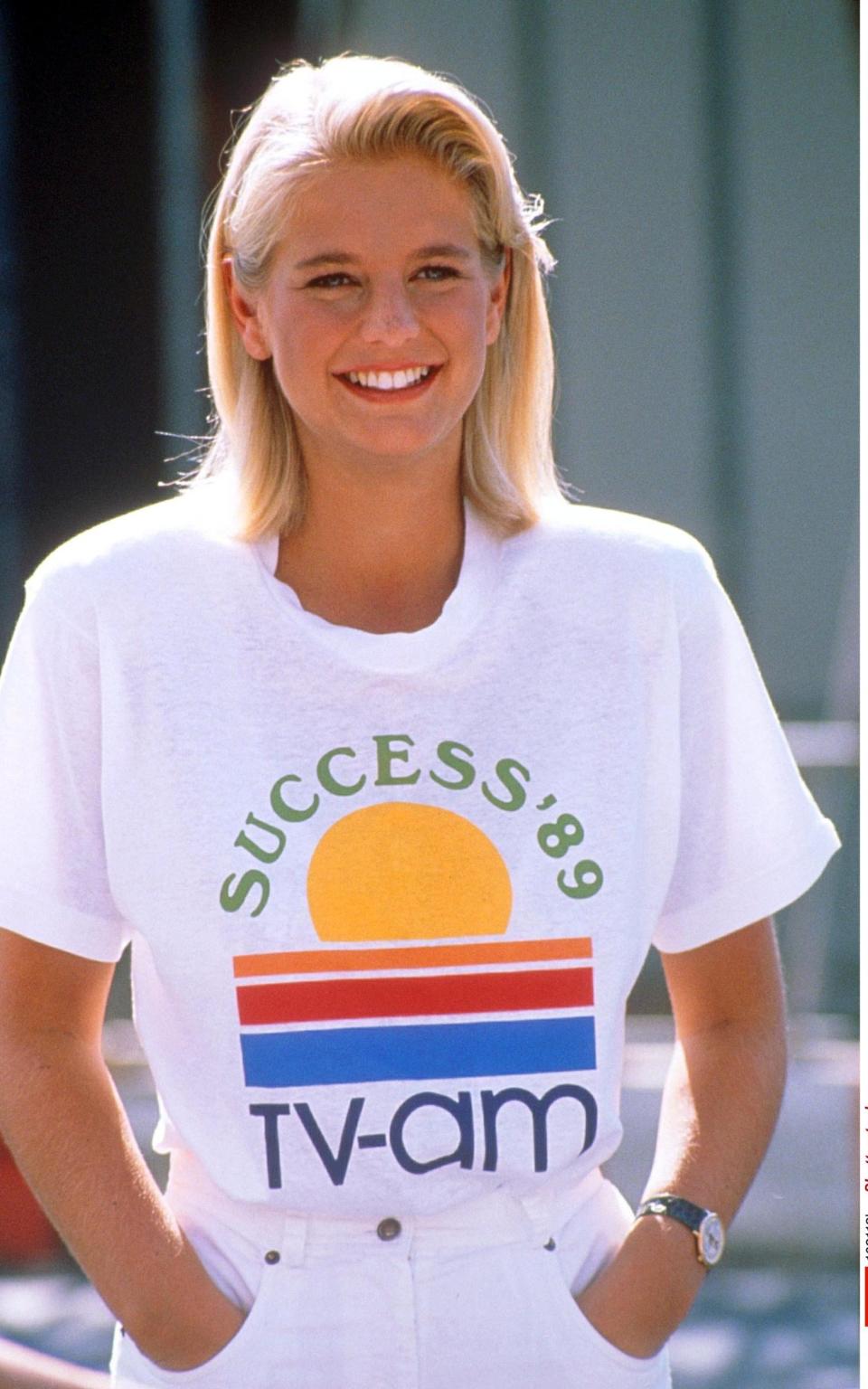
“The first time I was in the papers I was 20, when they thought I was dating Prince Edward,” she says, remembering a time when photographs of the pair emerged. She has said her friendship with the Prince was “largely” platonic. “I wasn’t [dating him] but I look at my children and think, gosh, that [attention] would be a lot to deal with.
“And my life from then on was work, career and children scattered in between. There was no time to do or be anything else. It was a lot. I don’t dwell on it but when I stopped doing so much TV you do think that [attention] is a lot for someone to go through. It’s nice there isn’t so much interest now. I can go out the front door and nobody cares.”
She presented countless other programmes, hosting the lottery and Eurovision, interviewing Prime Ministers John Major and Gordon Brown. She modelled for Playtex lingerie.
Since Gladiators, she has been in several reality programmes, including a triumphant go on Celebrity Big Brother in 2009. But perhaps her other best-known gig was on Vic Reeves and Bob Mortimer’s anarchic, surrealist BBC quiz show Shooting Stars, where she was a team captain from 1995-2002 and then again for a revival in 2009-2011.
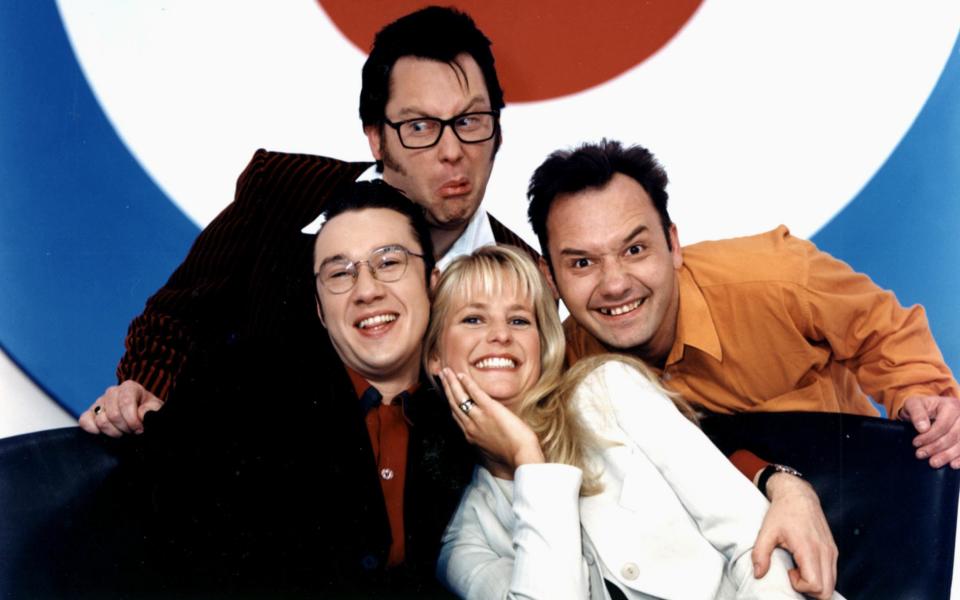
“Their humour is so quirky and bizarre,” she says. “But there were lots of things that we did that I wonder about now. I did a sketch where Matt Lucas and I were Jamie and Jools Oliver and I had this prosthetic nose and he had a lisp, which Jamie has. I just don’t know what you’d be able to get away with, even with wigs, and sweeping generalisations – which were hilarious. We’d do Geordie genes or a Welsh accent. You become so paranoid about what’s allowed and not.
“We all need educating, but trying to control comedy too much is going to break it. It won’t work. I like people who speak a little bit out of turn and say the wrong things, because I think it’s human nature. I’ve never been offended when people have taken the piss out of me.
“If it’s funny I’ll laugh regardless. With Jim [Moir, Vic Reeves’ real name] and Bob, every week it was like ‘she’s football crazy, she’s football mad, I can’t think of a footballer Ulrika hasn’t had.’ Why would you not laugh at that? It’s hilarious.”
In her downstairs loo I spy a signed picture from Vic and Bob. Jim has written: “Ulrika, you always look $100.” Bob has added “I say 100 lira.”
“I would always do whatever they wanted to do. Bob was very sweet and would often ask me ‘would you mind if I did this or that’. Jim didn’t give a s---. But that balance is why they worked so well together.”
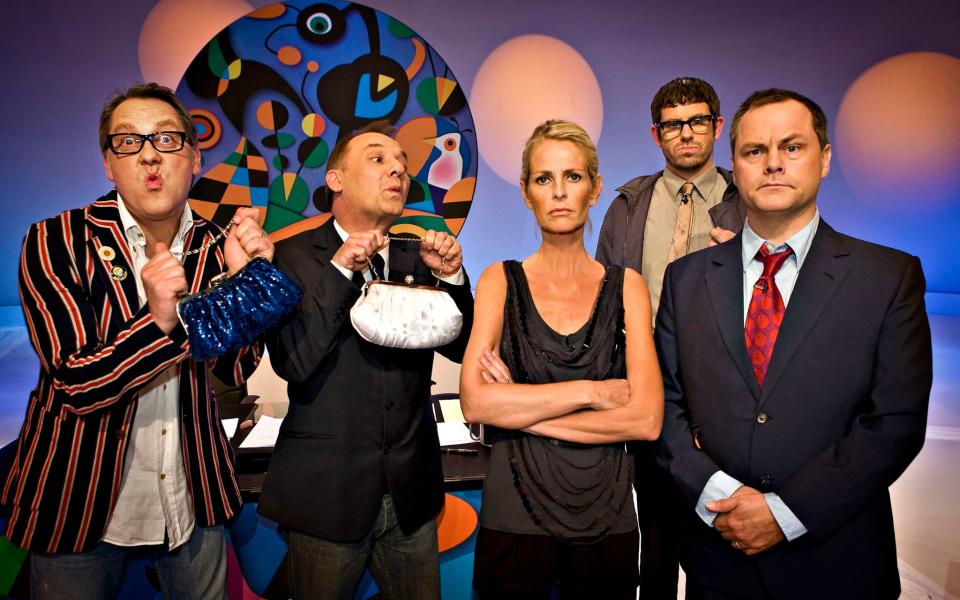
She caught up with Mortimer for the 2020 Christmas special of Gone Fishing, the improbable hit series he-presents with fellow 90s stalwart Paul Whitehouse. In that programme, the two men go fishing and cook each other nutritious meals while gently reminiscing.
“Who would have thought that would become a massive hit?” Jonsson says. “Two middle-aged men going fishing. But not only is it beautifully shot, it’s so lovely to listen to them.
“But I doubt two women would be commissioned to do that. I’ve been frustrated for years by the inability of commissioners to see the strength in women being able to do [those kinds of] shows. You have all these blokes going off. It would be nice to have some women. I don’t know why women aren’t trusted as much.
“It’s a battle I’ve had throughout my career. When I started out, the only woman entrusted with her own light entertainment show was Cilla [Black]. For everybody else, there had to be a woman and a man, and most of the time the woman would be the bit on the side or the assistant. Things are getting better, because we are all getting better at diversity, but it still feels very male dominated and unjust.”
What would she like to do? “Well it’s funny, years ago I thought why couldn’t there be a tour of Scandinavia: Ulrika, Sandi Toksvig and Mariella Frostrup? Sweden, Denmark and Norway.” One can imagine the dads tuning in, as well as the mums.
Jonsson’s rise through the TV ranks in the 90s came alongside a tumultuous personal life. Frequently it played out in full view of the press, accompanied by Jonsson’s refreshingly straight-shooting disclosure.
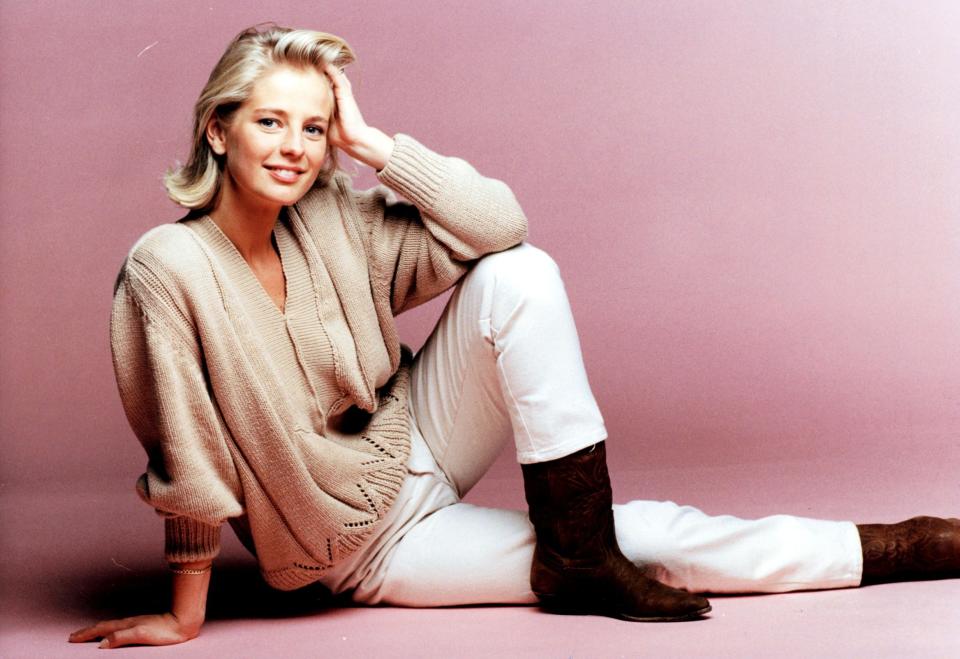
“Honesty is my currency,” she says. “I find it easy to be honest. Everybody has to make mistakes or endure things. I feel like giving a piece of myself is not a sacrifice. Even if it’s to my detriment.” But it has come at a price. “If you give a piece of yourself, people believe they should have access to all of you. When I walk into a room, everyone will have an opinion on me – maybe not nowadays – but people have already made their minds up, which is why I haven’t always been terribly social.”
She has been married three times, and has four children by four different fathers, which have made her a target for press sniping. Her first husband was John Turnbull, a cameraman, whom she married in 1990 and with whom she had a son, Cameron, before they divorced in 1995. In 2000, she had a daughter, Bo, with a German hotelier, Markus Kempen, but he walked out when Bo was a baby. Today Bo is a qualified Norland Nanny.
In 2002, when Jonsson was at the height of her fame, she confessed to an affair with Sven-Goran Eriksson, the professorial fellow Swedish football manager who was in charge of the England team. The story caused a scandal, not least because he was in a relationship with Nancy Dell’Olio. Yesterday, it was reported that Goran-Eriksson has terminal cancer and has been given less than a year to live.
“I have nothing to say,” Jonsson says. “He didn’t exactly cover himself in glory when it came to me.”
The following year she married Lance Gerrard-Wright, but they divorced in 2006, having had Martha, a daughter, born in 2004. Jonsson’s longest marriage was to Brian Monet, an advertising executive, to whom she was married from 2008-2019 and with whom she has a son, Malcolm, who is studying for his GCSEs. She says she is a loving parent, she is trying to create space for her to be herself, too.
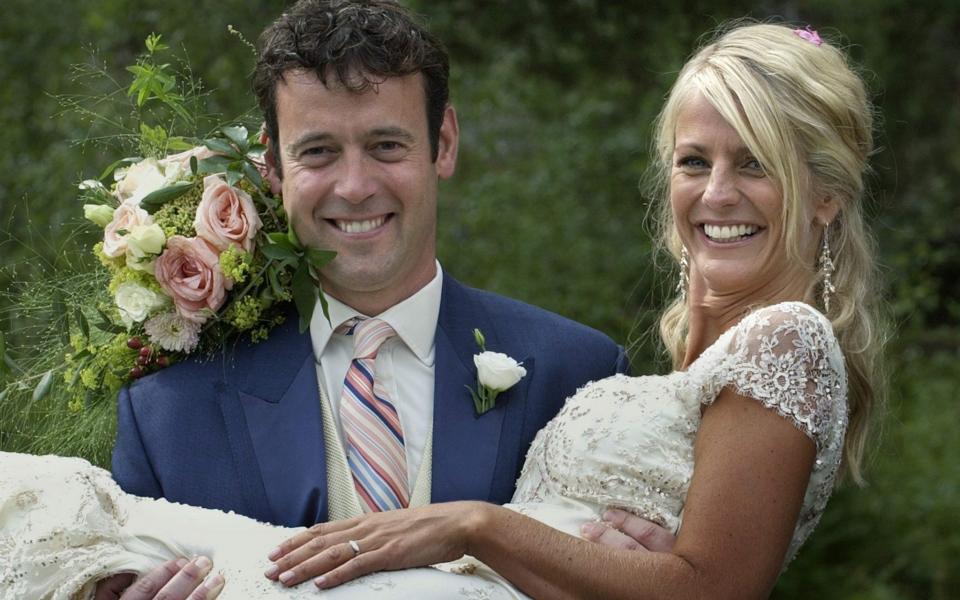
“Parents are scared of their children [now],” she says. “They feel they have to stimulate them all the time and have activities all the time. Kids need to be allowed to be bored. I know kids are annoying at the table but if they don’t learn to communicate they’ll never do it. They’ll have a constant demand for entertainment.”
As well as her marriages, she said she was raped by someone in television, mistakenly identified for a while as John Leslie. In 1998 she was physically attacked by the footballer Stan Collymore in a Paris wine bar.
While she always understood that intrusion into private life was part of her career, she says it took its toll on those around her, and at times went too far.
“The worst times were when your personal life is splashed across the papers,” she says. “That feeling of not having control, and also how it affected other people. I’d made the choice to have the career, but maybe people around you don’t know how to handle it. I aged a few years over some of the anxiety. But I always knew the deal, that this intrusion was part of the gig.
“Some of it didn’t feel appropriate but it is what it is. That’s why it’s hard when I see these reality stars come out [and complain]. It is hard to cope with life after that but you know it’s going to happen. You can’t turn it off when you want to. You haven’t earned the right to pick and choose when you want to [be in the papers].
“My phone was hacked,” she adds. “It was shocking, but you’re part of this big machine. There’s a give and take – not that I’m suggesting that it was good practice. It’s hard to know when you’re in it. At the height of my fame in the early 2000s it was like being in a tumble dryer.”
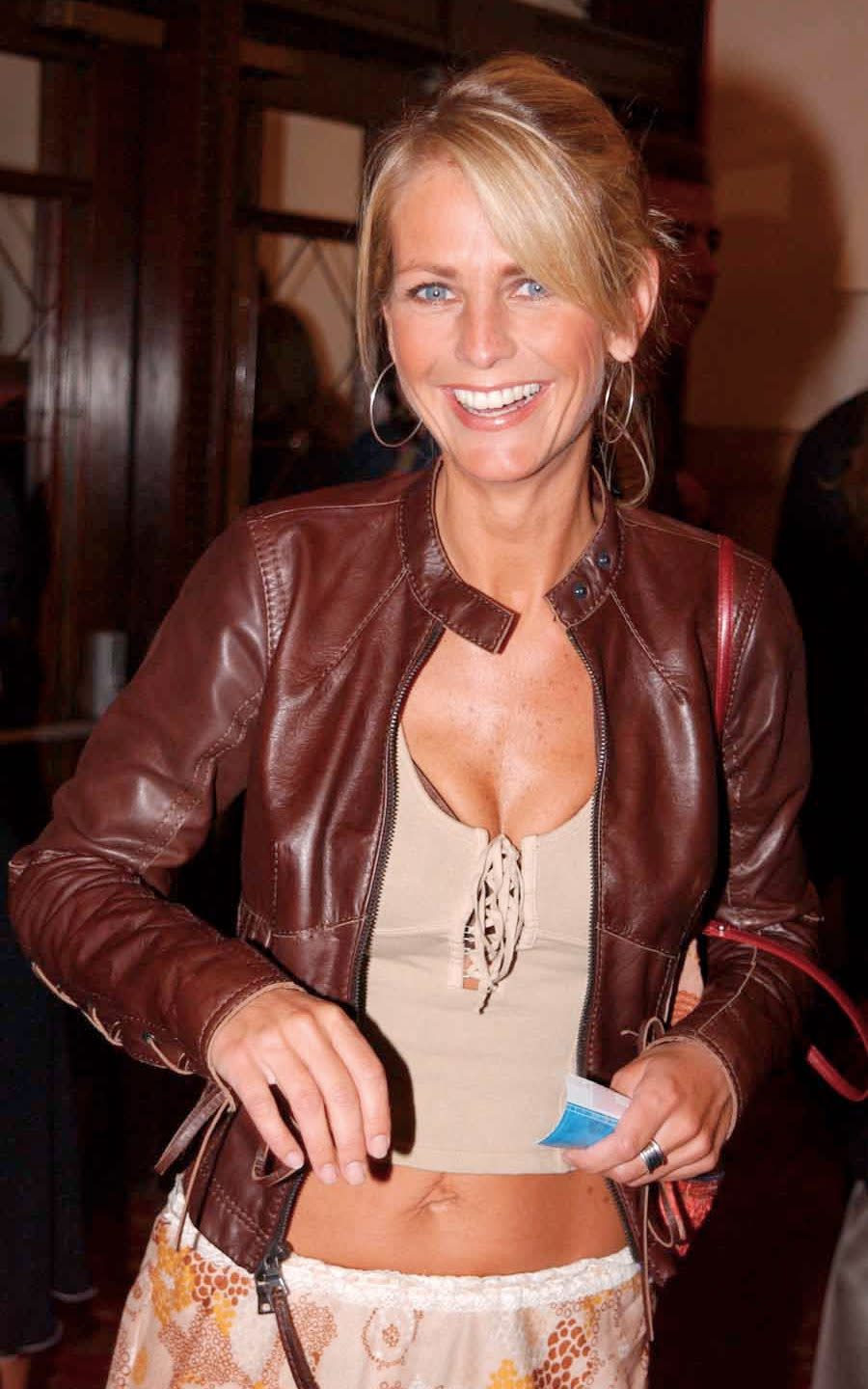
She is in no hurry to marry again, but has been online dating and is keen to write a book about her experiences. “It has been a rollercoaster and a steep learning curve,” she says.
“People aren’t truthful [on apps]. It’s a shock. I worry about how we are forming relationships going forward because they take a lot of the humanity out of it and there’s no accountability. It’s the wild west out there. It’s like Jurassic Park.”
She also thinks she would make a good agony aunt. “People joke about getting relationship advice from Ulrika Jonsson,” she says. “But you’d rather get relationship advice from me than a nun or a virgin. You want somebody who can say ‘don’t do this, because I did that and it was a terrible idea.’
As for Gladiators, she will be tuning in. “My advice to the new Gladiators is that there’s no such thing as a free lunch. If you want to do this, you have to have a good understanding that it’s going to ask things of you that you may not want to give. So choose wisely and don’t be lazy.”
Gladiators starts on BBC One on Saturday, January 13, at 5.50pm


